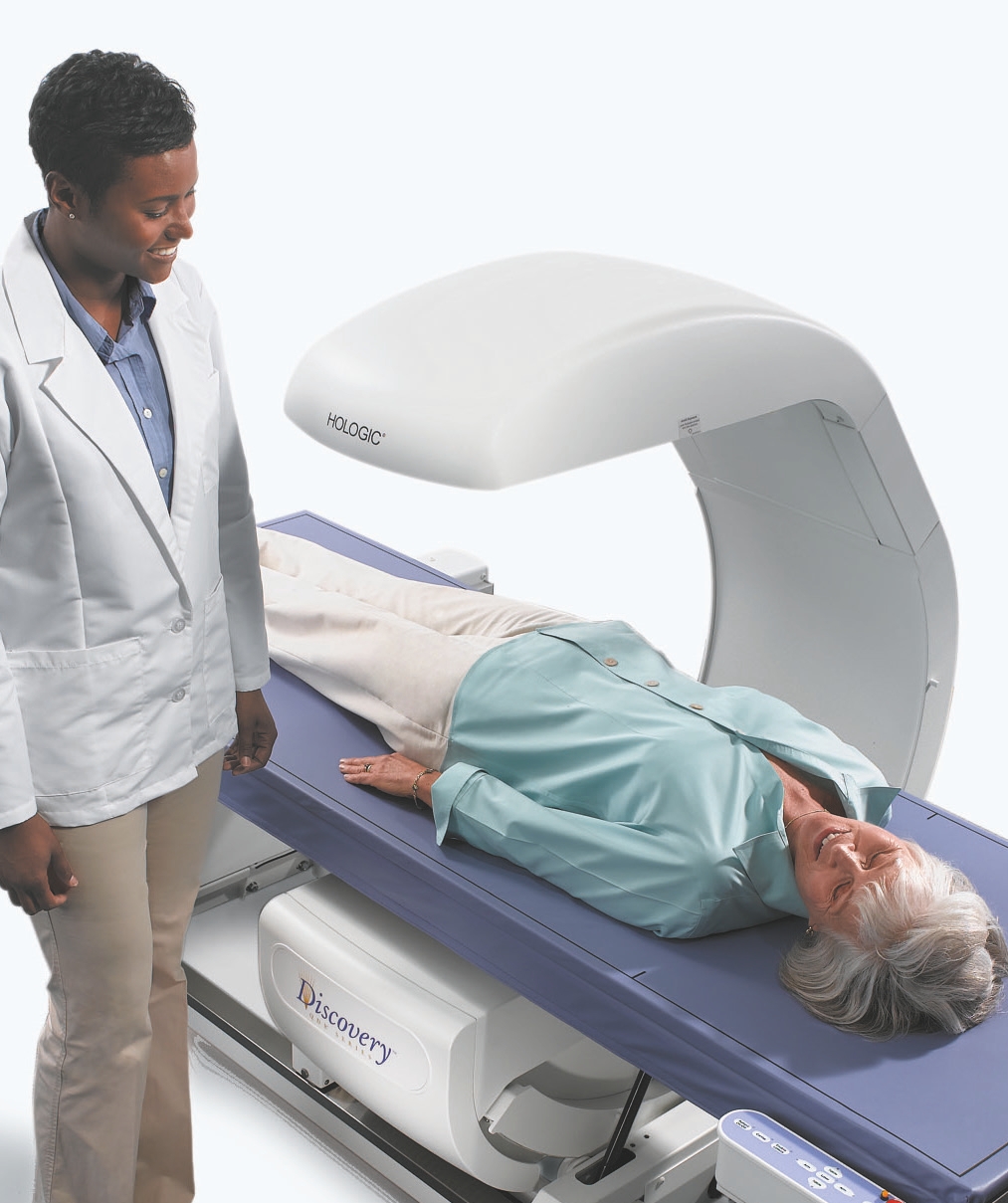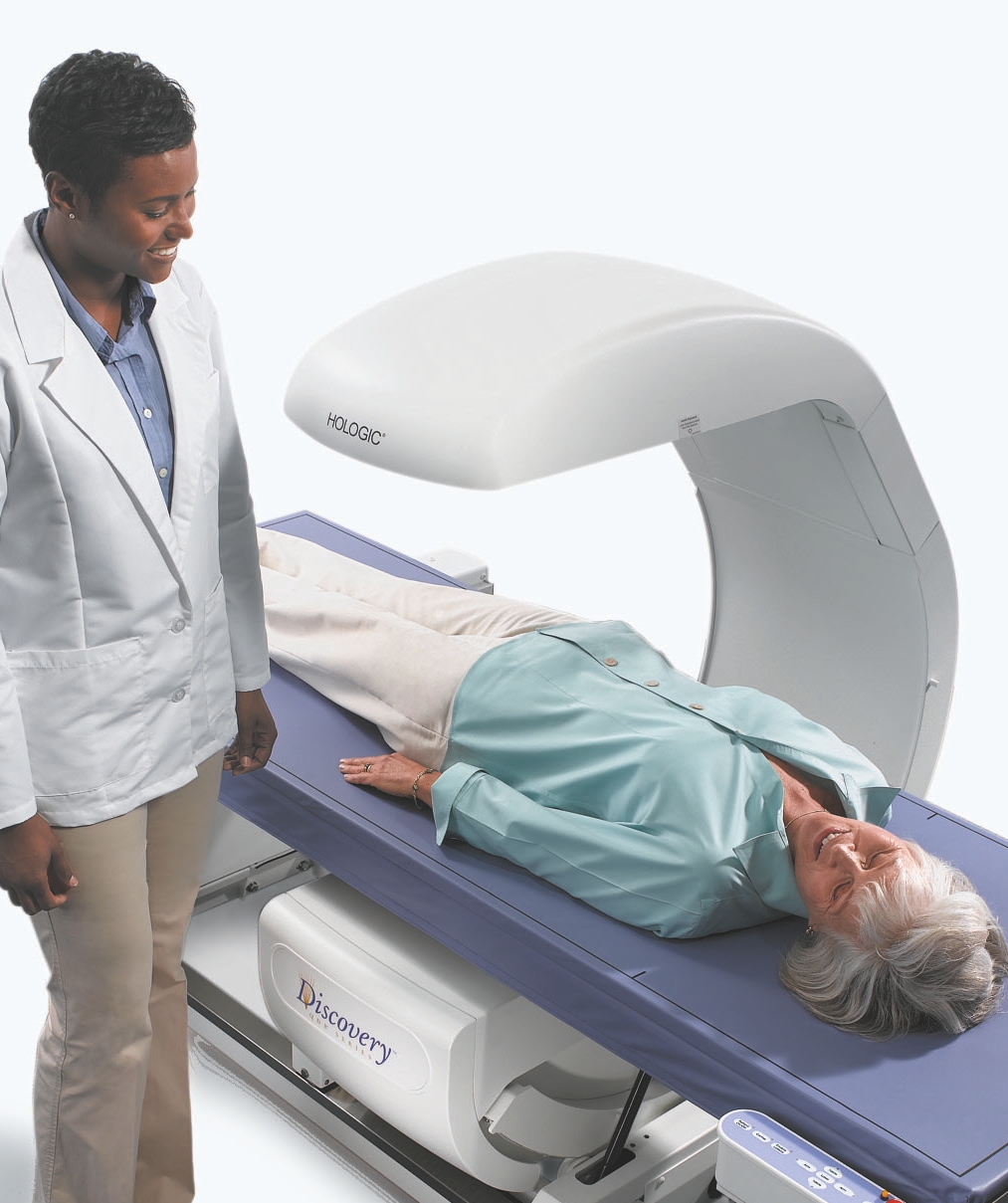





DEXA Patient Guide
Last Updated
August 29, 2024
DEXA Patient Guide
What is a bone densitometry or DEXA scan?
- DEXA (bone densitometry) stands for ‘dual energy X-ray absorptiometry’. It is a very simple examination where you lie on a special bed while the arm of a scanner passes over you.
- The bone densitometer measures your bone mineral density. It will compare your measurements to those of other people of a similar age and weight, and of the same sex and ethnic background. Your doctor will use this information to decide if you have osteoporosis and if you are at risk of having brittle bones.
- Before the introduction of this kind of dedicated equipment, evaluating bone density using conventional X-ray systems did not reveal a potential problem until a patient had lost 25 to 30 percent of the bone density. Now, with short scanning times and low X-ray doses, this highly sensitive equipment can help identify risk at a much earlier stage. In addition, it can also evaluate your response to treatment, helping to prove that the chosen therapy is effective.
Who will I see?
A small team of radiography staff will look after you during your visit and a suitably trained and qualified member of staff will carry out the scan.
Do I need an injection?
No you will not need an injection.
What happens during my appointment?
- When you arrive you should go to the reception desk - please bring your appointment letter which may have details of who to ask for.
- The radiographer or another member of staff will meet you and explain the procedure to you.
- You should wear comfortable clothes that have no metal zips or buttons. Or, we can provide you with a gown to change into. If you wear a bra we will ask you to take it off.
- We will take you into the scanning room and ask you to lie down on the scanner table (couch).
- The arm of the scanner will pass over you.
After the scan
- You can eat and drink normally after the scan.
- You can drive home afterwards and return to work if you need to.
Are there any side effects?
There are no known side effects from a DEXA scan.
Can I bring a relative or friend with me?
- Yes, but they will only be allowed to go into the examination room in special circumstances (for safety reasons).
- Children are not allowed into the room while you are having the scan and our staff are unable to care for children during an examination. Please make alternative arrangements for any childcare needs.
Contacting us
It is very important to us that you have been given all the necessary information so that your scan is carried out successfully. Please contact us on the number given in your appointment letter if you have any questions, concerns or suggestions.
If you require this information in a different format please let us know via customercare@alliance.co.uk
What is osteoporosis?
- Osteoporosis is the depletion of bone mineral density. It affects almost half of all post-menopausal women (the highest risk group for the condition)and causes progressive bone loss which in turn increases the risk of fracture.
- If your doctor decides that you have osteoporosis, potential changes in diet, exercise habits and/or medication can help prevent further deterioration of the bone.
Is it safe?
Exposure to X-ray radiation could slightly increase your chances of developing cancer many years later, although standard DEXA procedures use extremely low doses of radiation so this risk is estimated to be very small. A typical DEXA exam is equivalent to about 3 hours exposure to natural background radiation from the environment. The doctor who has referred you for this procedure has decided that the benefits of the X-ray outweigh the risks. If you are or think you may be pregnant, you should tell us before your scan.
Before the scan
- Unless we let you know, you do not need to make any special preparations for your DEXA examination and you can continue to eat and drink as normal and take any prescribed medicine.
- Please let us know about any special needs you have - for example, if you need wheelchair access, you are hard of hearing or you have poor eyesight.
- We do ask that the clothing you wear to your appointment be free from metal buttons and metal zips, if possible. We also ask that you avoid wearing long flowing articles of clothing and that suitable footwear is worn to ensure your safety when attending for your scan. Please note that your scan may be conducted on one of our mobile units which can involve access via metal steps and/or a patient lift.
- Please do not bring any valuable possessions, such as jewellery or watches to your appointment. You may be asked to remove all jewellery during your appointment and these items will remain your responsibility.
Will it be uncomfortable?
There is no discomfort during your scan.
How long will it take?
- Spine or hip measurements take around five minutes.
- You should allow an hour from the time you arrive for your appointment to the time that you leave.
When will I get the results?
- We will send the results to your doctor or consultant who will be able to discuss them with you at your follow-up appointment.
- If a follow-up appointment is not already arranged, you will need to contact your doctor or consultant to make an appointment to get your results.
Your Personal Data
Alliance understands that your personal data is entrusted to us and appreciate the importance of protecting and respecting your privacy.




.png)


